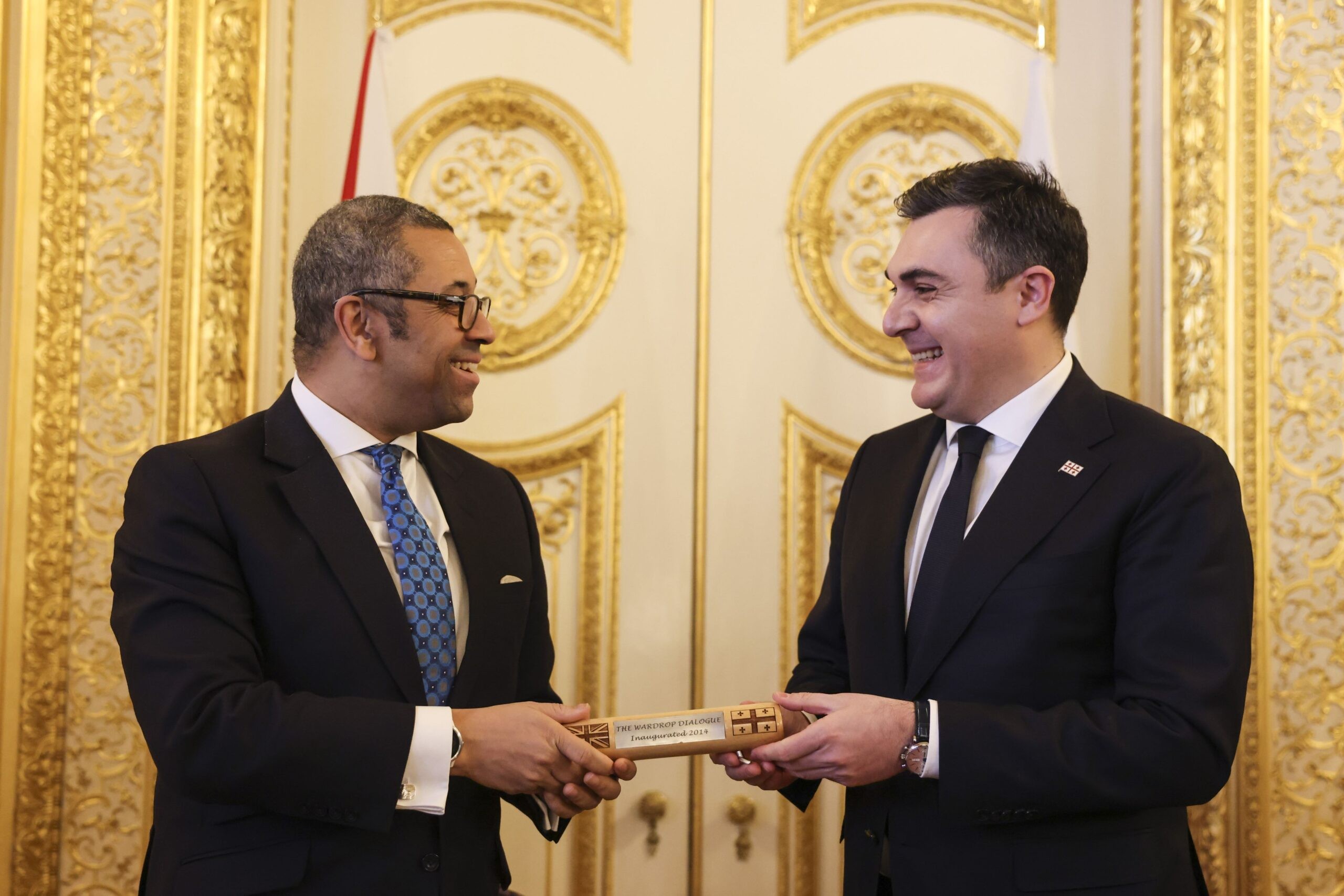UK suspends ‘strategic dialogue’ and defence talks with Georgia

The UK has announced it has suspended a number dialogue formats with Georgia, citing the government’s anti-democratic actions.
In an interview with the Georgian news agency IPN published on Tuesday, the British Ambassador to Georgia, Gareth Ward, said the move came in response to democratic backsliding and anti-Western rhetoric by the Georgian government.
He said the UK had frozen the Wardrop Dialogue, an annual British-Georgian strategic dialogue format, cancelled high-level talks between British and Georgian defence staff, and put a new cybersecurity programme on hold.
The Wardrop Dialogue was established in 2014 during the premierships of British Prime Minister David Cameron and Georgian Prime Minister Irakli Gharibashvili. It has involved senior officials from both governments and has covered a wide range of cooperation discussions, including Euro-Atlantic integration.
In the interview, Ward emphasised that this was the first time in the 10 years since the dialogue’s establishment that the UK had taken such a measure.
Ward cited Georgia’s deteriorating relations with the UK, which he claimed were the result of several decisions made by the Georgian government under the ruling Georgian Dream party. These included passing the foreign agent law, vowing to prosecute political rivals, and promoting ‘conspiracy theories’ that suggested Georgia’s Western partners were ‘undermining’ the country.
‘We were shocked when Georgian Dream named the banning of opposition parties as a promise of its election programme’, Ward said.
[Read more: Georgian Dream to seek constitutional majority to ban the opposition]
The foreign agent law garnered widespread local and international criticism as Georgian Dream pushed for its adoption for the second time earlier this year, including condemnations from the UK government.
‘This draft law and the accompanying orchestrated intimidation of protestors are not in line with the democratic values of a NATO aspirant country and fundamentally risk derailing Georgia’s Euro-Atlantic aspirations’, the UK Minister for Europe, Nusrat Ghani, stated on 14 May, the day Georgia’s parliamentary majority unilaterally adopted the controversial law in its third and final reading.
Speaking to IPN, Ward also expressed the UK’s disapproval of the recently adopted LGBT ‘Propaganda’ law. He described the law, which Georgian Dream also unilaterally adopted in mid-September, as discriminatory and in conflict with both Georgian and British values.
[Read more: Explainer | What’s in Georgia’s new anti-queer bill?]
However, Ward, who took up his post in August, also expressed hope to ‘see clear evidence of a return to the Euro-Atlantic path to rebuild trust and return to a close partnership’ after this month’s elections, ‘regardless of who is in government’.
He reminded others that as a former EU member, the UK was ‘not directly involved’ in Georgia’s EU membership application. He nevertheless underlined that the UK supported Georgia’s EU aspirations as well as ‘the reforms that are necessary to achieve this goal’. Ward also highlighted the UK’s role in helping Georgia on its path to NATO membership.
‘Great Britain and Romania act as NATO contact embassies in Georgia. Britain also conducts a wide range of military exercises and contributes to the development of Georgia’s defence capabilities, but NATO is not only a military alliance, it is also a political union. Accordingly, in order to join NATO, it is important for Georgia to fulfil its obligations in the direction of free courts, human rights protection, and parliamentary supervision’, he noted.









